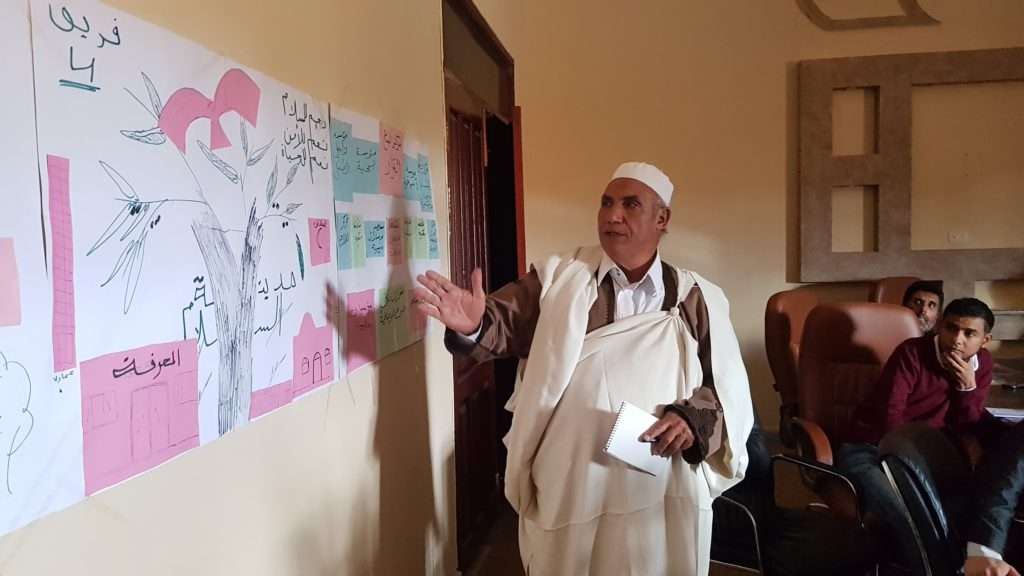Peaceful Change initiative to close at the end of 2025
It is with great sadness that the Board of Trustees of the Peaceful Change initiative has taken the difficult decision to wind down the charity.
Whilst closing is very sad for PCi’s staff, trustees and partners around the world, we are also immensely proud of what we have achieved together during the past thirteen years. For example:
- We know that previously warring communities in Libya are living peacefully side by side in towns across the country due to the remarkable work of the PCi team and partners there.
- We know that tens of thousands of Syrians are alive today due to the brave negotiation and mediation efforts of our partners.
- We know that conflict sensitivity in Mozambique is much higher on the agenda of donors, implementers and companies due to better conflict sensitivity tools and PCi’s advocacy efforts there.
- We know that young people in Armenia have better opportunities to influence how their country deals with conflict due to the work PCi did with Partners and Government on the Youth, Peace and Security agenda.
- We know that in Serbia and Kosovo, civil society organisations are better able to push back publicly on conflict generating narratives in mainstream media due to work supported by PCi.
We know that peacebuilding works to confront the drivers of violent conflict and to build the conditions that make sustainable peace possible.
However, like many peacebuilding organisations in the UK and around the world, we have faced growing financial pressures due to a steady decline in donor funding for peacebuilding and conflict prevention, the increasing commercialisation and compliance costs of government donor contracts, and donor refusal to cover realistic overhead costs.
The recent announcement by the UK Government to drastically cut the foreign aid budget to fund an increase in defence spending has been a further significant blow to us. We cannot find a way to develop a sustainable funding model in the current climate, leaving us with no option but to close.
At a time of rapidly rising global conflict and polarisation, the dialogue, relationship building, problem solving and imagination that peacebuilding offers is needed as much as ever. We urge trusts, foundations and private philanthropists to increase their support to peacebuilding organisations. Their experience and expertise will be much needed in the future.
Over the coming months we will be working with staff and partners to ensure that PCi’s legacy lives on, and that the tools, materials and knowledge we have created are made available to those who need them.
Our main focus now is to close down our existing projects responsibly and safely, and to support our staff in finding new opportunities. We expect to wrap up our final project commitments in the autumn and then begin the process of formally closing down the organisation.
We expect that PCi will close for good by the end of 2025.
Thank you for being part of our journey. Please reach out if you would like to connect with our team about job or consultancy opportunities, or if you would like to help rehome publications and materials: legacy@peacefulchange.org
Recent resources

Turkey’s approach to stabilisation: implications for the peacebuilding sector
This report examines Turkey’s increasing engagement in stabilisation and peacebuilding efforts.
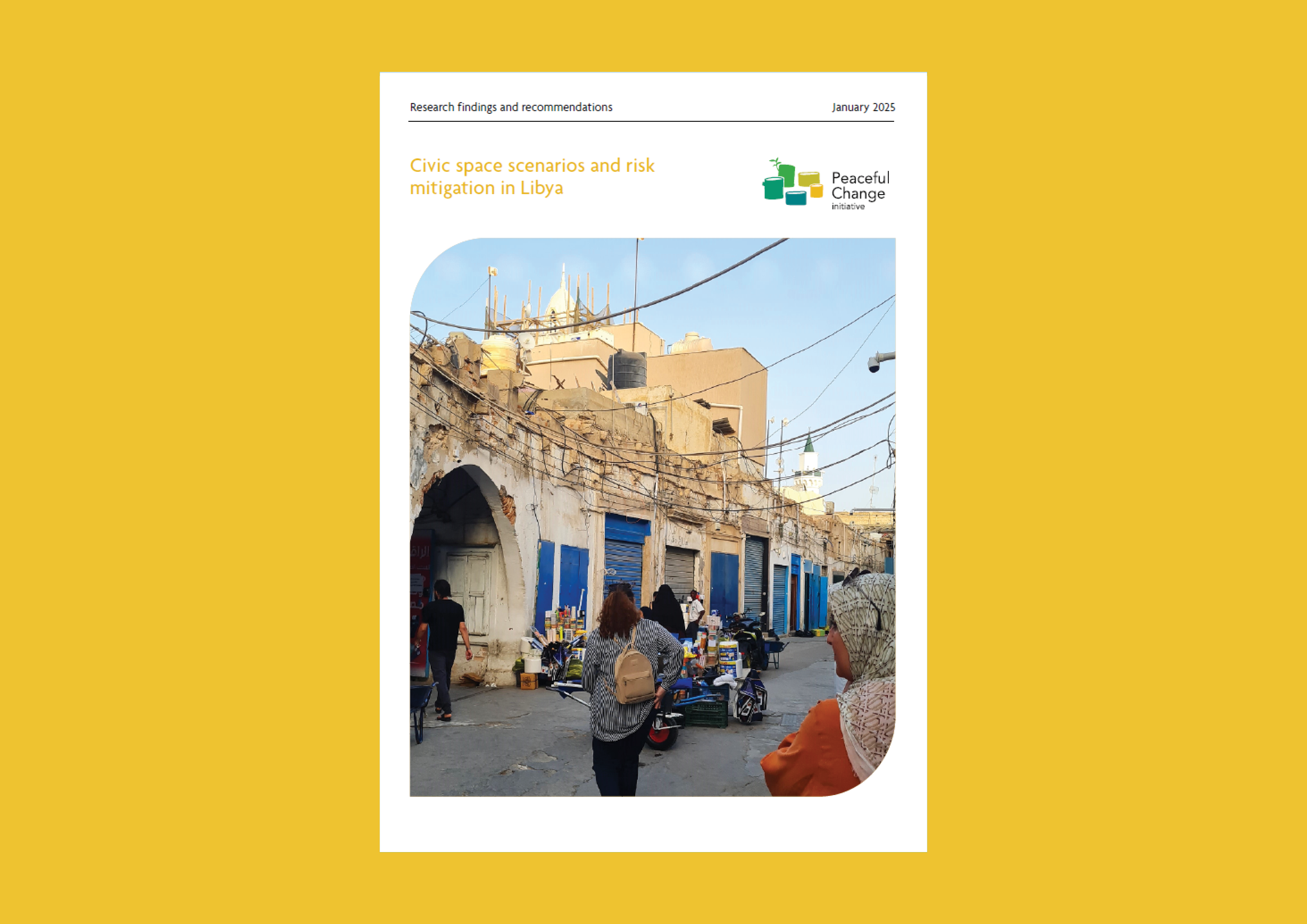
Civic space scenarios and risk mitigation in Libya
This paper highlights how international donors international donors who partner with Libyan CSOs can help protect and expand civic space in Libya.
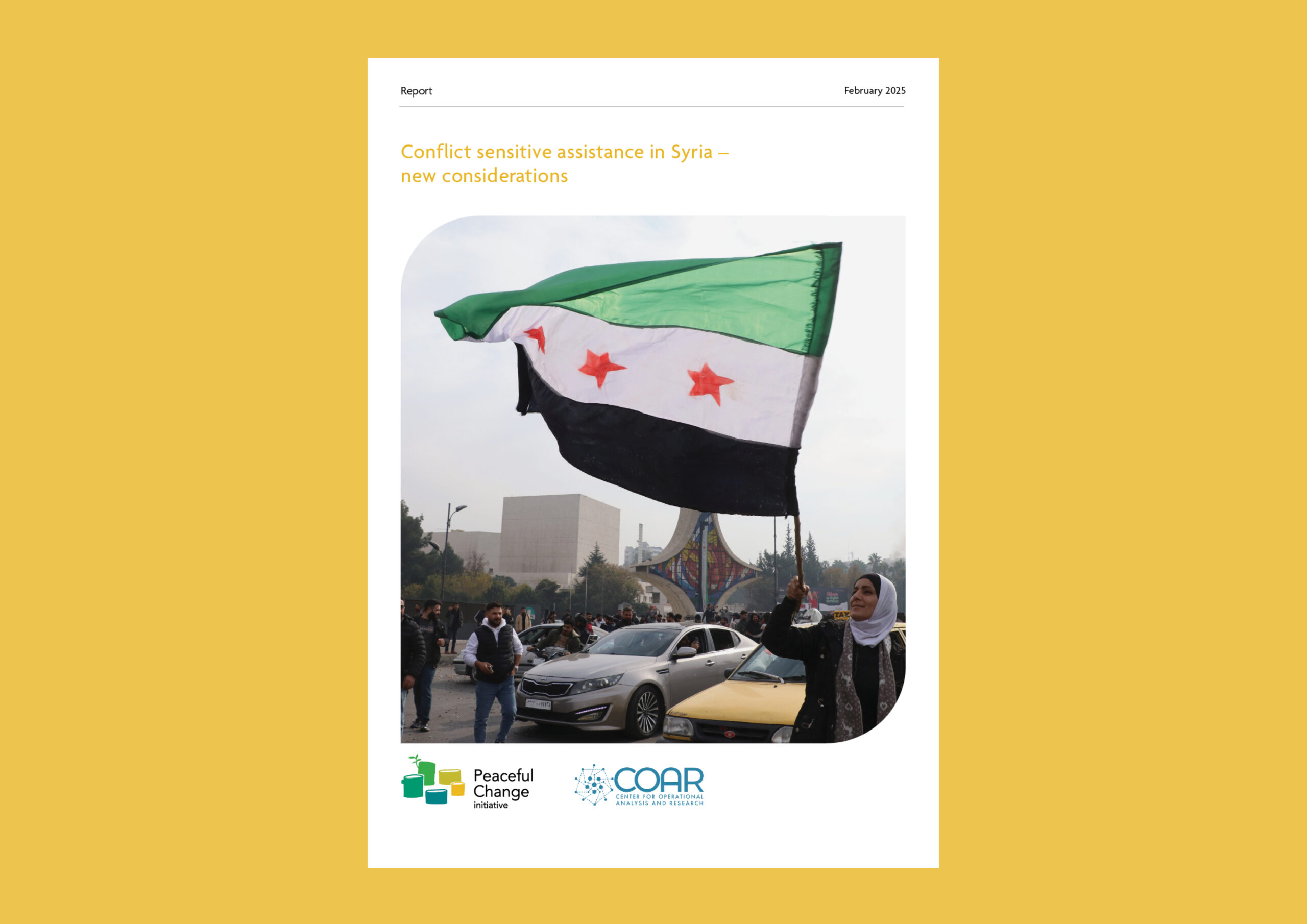
Conflict sensitive assistance in Syria – new considerations
This report outlines a number of ways in which international assistance risks doing harm and ways in which it can contribute to peace in Syria.
Youth perspectives on peace in south Serbia
Building a more inclusive peace: women’s inclusion and leadership
Renewing commitments to the cause of peace
Youth perspectives on peace in south Serbia
Building a more inclusive peace: women’s inclusion and leadership
Conflict sensitivity master class series
This podcast series challenges many of the traditional tools of conflict sensitivity, and advocates for more pragmatic approaches to implementing conflict sensitive programmes. The series also introduces a range of new conflict sensitivity tools.
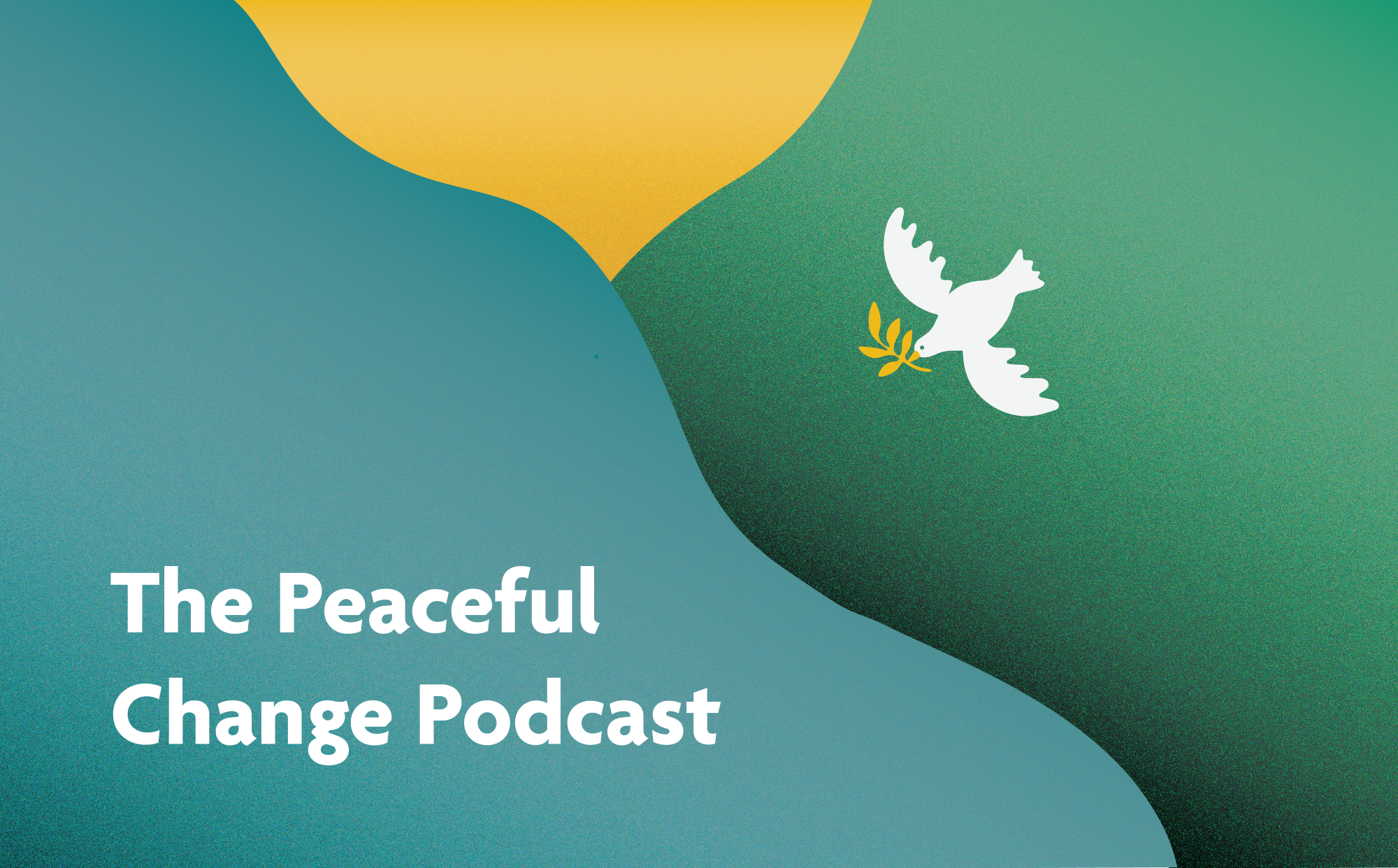
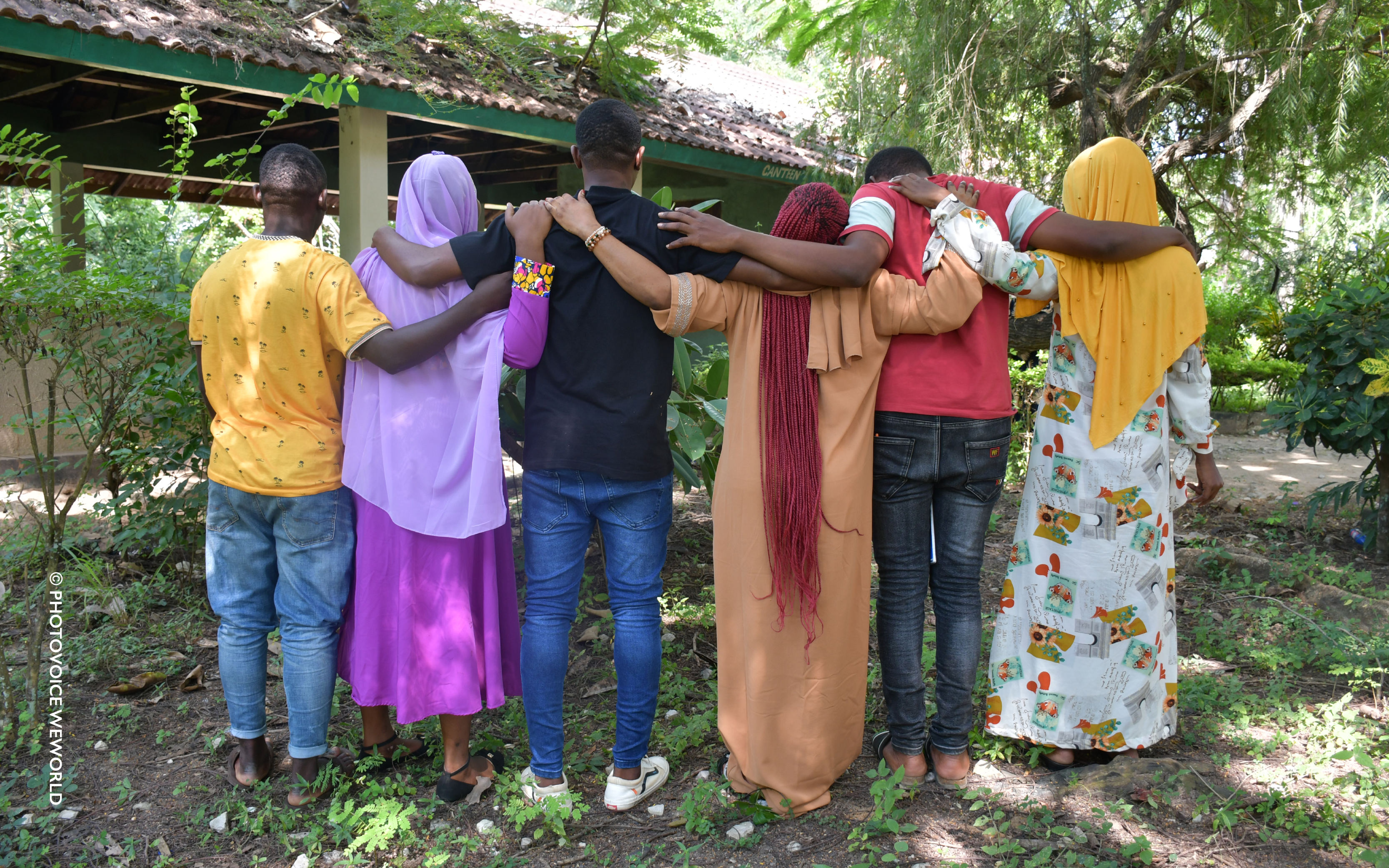
Young people and peacebuilding in the Swahili Coast
Young people are critical to building and sustaining peace in their communities, but they are often excluded from peace efforts. Our latest report explores the intersection between youth, culture and peacebuilding along the Swahili Coast.
Where we work
Youth perspectives on peace in south Serbia
Building a more inclusive peace: women’s inclusion and leadership
Renewing commitments to the cause of peace
Youth perspectives on peace in south Serbia
Building a more inclusive peace: women’s inclusion and leadership
How we support peaceful change
We establish deep knowledge and strong partnerships where we work. This allows us to do both the long-term work of building peace and to respond rapidly and effectively to crises.
